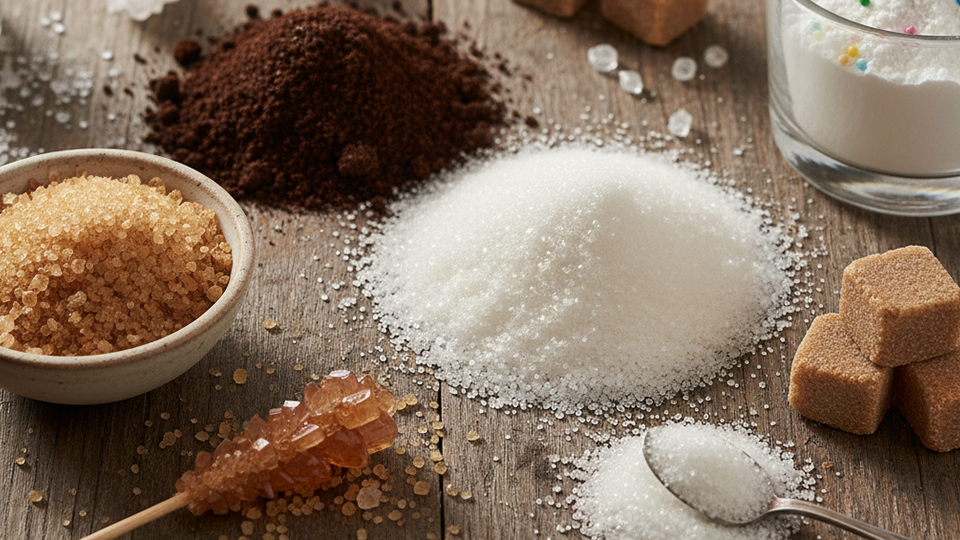Looking at the human diet, the main nutrients our bodies need, termed “macronutrients,” fall into three categories: carbohydrates, fats, and proteins. The word “protein” is derived from the Greek word “proteio,” roughly meaning “primary.” This is fitting, as proteins play some particularly important roles in the body, including building tissues like muscle and functioning as enzymes and hormones.
Not surprisingly, supplying our bodies with high-quality dietary protein is important. Sources like meat, fish, and plant protein can all offer important health benefits. Another protein, the fraction of milk called whey, has some notable properties that make it a solid dietary option.
A Once-Neglected Product of Cheesemaking
Whey protein has been produced ever since cheesemaking began. However, for most of its history, whey was thought to be an unimportant byproduct (1). In the cheesemaking process, a coagulant is added to milk to separate the curds (casein protein) and whey (the water-soluble part of milk) (1). Whey can then be processed in a more concentrated form and dried into a powder. The whey protein powder can then be added to various food and dietary supplement products.
Whey offers a very high-quality protein as rated by its biological value, which measures how much of the protein can be utilized. For example, whey has a biological value of 104, meaning nearly all of the amino acids are used by the body (2). This once-neglected byproduct is now a highly sought-after protein source not to be wasted.
Immune Support
Whey naturally contains a number of peptides, or short amino acid chains, that have been studied for their immune support benefits. Two peptides found in whey protein called alpha-lactalbumin and beta-lactoglobulin have been shown to support immune system functioning by boosting white blood cell function and production (3-5).
White blood cells are involved in protecting the body against infections and foreign bodies. A compound in alpha-lactalbumin and another component of whey called glycomacropeptide may also enhance the function of a group of white blood cells called macrophages that patrol and scavenge pathogens and foreign substances (6, 7).
Components of whey may even help increase immunity and, in the digestive tract, lead to better absorption of nutrients (8). Therefore, whey protein may provide support to the healthy functioning of the immune system.
Increasing the Antioxidant Glutathione
When examining the amino acid composition of whey, there is a notable amount of cysteine (9). This amino acid functions as the rate-limiter in the production of the antioxidant glutathione.
In our bodies, glutathione plays a critical role in the oxidation reduction and detoxification processes, which is important for our health (10). Consuming whey protein on a daily basis has been reported to increase glutathione levels in otherwise healthy individuals (11, 12).
Effects on Appetite
Whey protein may also impart some positive effects on appetite by increasing the feeling of fullness after consumption (13). Several research studies have noted decreased food intake for meals following servings of whey protein. Over time, this can reduce overall energy consumption and support weight loss efforts.
In conclusion, whey is more than just a protein. With these unique features, it may deserve a spot in your diet to help you meet your daily protein and wellness needs.
References
- Guo M, Wang G. History of Whey Production and Whey Protein Manufacturing. In: Whey Protein Production, Chemistry, Functionality, and Applications, M. Guo (Ed.). 2019 Feb 1. Doi: 10.1002/9781119256052.ch1
- Hoffman JR, Falvo MJ. Protein – Which is Best? J Sports Sci Med. 2004 Sep 1;3(3):118-30.
- Ebert EC, Roberts AI. Lamina propria lymphocytes produce interferon-gamma and develop suppressor activity in response to lactoglobulin. Dig Dis Sci. 2001 Mar;46(3):661-7. doi: 10.1023/a:1005684123481.
- Rusu D, Drouin R, Pouliot Y, Gauthier S, Poubelle PE. A bovine whey protein extract can enhance innate immunity by priming normal human blood neutrophils. J Nutr. 2009 Feb;139(2):386-93. doi: 10.3945/jn.108.098459.
- Wong KF, Middleton N, Montgomery M, Dey M, Carr RI. Immunostimulation of murine spleen cells by materials associated with bovine milk protein fractions. J Dairy Sci. 1998 Jul;81(7):1825-32. doi: 10.3168/jds.S0022-0302(98)75752-2.
- Li EW, Mine Y. Immunoenhancing effects of bovine glycomacropeptide and its derivatives on the proliferative response and phagocytic activities of human macrophagelike cells, U937. J Agric Food Chem. 2004 May 5;52(9):2704-8. doi: 10.1021/jf0355102.
- Migliore-Samour D, Roch-Arveiller M, Tissot M, Jazziri M, Keddad K, Giroud JP, Jollès P. Effects of tripeptides derived from milk proteins on polymorphonuclear oxidative and phosphoinositide metabolisms. Biochem Pharmacol. 1992 Aug 18;44(4):673-80. doi: 10.1016/0006-2952(92)90402-5.
- Daddaoua A, Puerta V, Zarzuelo A, Suárez MD, Sánchez de Medina F, Martínez-Augustin O. Bovine glycomacropeptide is anti-inflammatory in rats with hapten-induced colitis. J Nutr. 2005 May;135(5):1164-70. doi: 10.1093/jn/135.5.1164.
- Sindayikengera S, Xia WS. Nutritional evaluation of caseins and whey proteins and their hydrolysates from Protamex. J Zhejiang Univ Sci B. 2006 Feb;7(2):90-8. doi: 10.1631/jzus.2006.B0090.
- Pastore A, Federici G, Bertini E, Piemonte F. Analysis of glutathione: implication in redox and detoxification. Clin Chim Acta. 2003 Jul 1;333(1):19-39. doi: 10.1016/s0009-8981(03)00200-6.
- Zavorsky GS, Kubow S, Grey V, Riverin V, Lands LC. An open-label dose-response study of lymphocyte glutathione levels in healthy men and women receiving pressurized whey protein isolate supplements. Int J Food Sci Nutr. 2007 Sep;58(6):429-36. doi: 10.1080/09637480701253581.
- Sheikholeslami Vatani D, Ahmadi Kani Golzar F. Changes in antioxidant status and cardiovascular risk factors of overweight young men after six weeks supplementation of whey protein isolate and resistance training. Appetite. 2012 Dec;59(3):673-8. doi: 10.1016/j.appet.2012.08.005.
- Mollahosseini M, Shab-Bidar S, Rahimi MH, Djafarian K. Effect of whey protein supplementation on long and short term appetite: A meta-analysis of randomized controlled trials. Clin Nutr ESPEN. 2017 Aug;20:34-40. doi: 10.1016/j.clnesp.2017.04.002.
- Akhavan T, Luhovyy BL, Brown PH, Cho CE, Anderson GH. Effect of premeal consumption of whey protein and its hydrolysate on food intake and postmeal glycemia and insulin responses in young adults. Am J Clin Nutr. 2010 Apr;91(4):966-75. doi: 10.3945/ajcn.2009.28406.
- Pal S, Ellis V. The acute effects of four protein meals on insulin, glucose, appetite and energy intake in lean men. Br J Nutr. 2010 Oct;104(8):1241-8. doi: 10.1017/S0007114510001911.
- Oberoi A, Giezenaar C, Jensen C, Lange K, Hausken T, Jones KL, Horowitz M, Chapman I, Soenen S. Acute effects of whey protein on energy intake, appetite and gastric emptying in younger and older, obese men. Nutr Diabetes. 2020 Oct 2;10(1):37. doi: 10.1038/s41387-020-00139-8.





